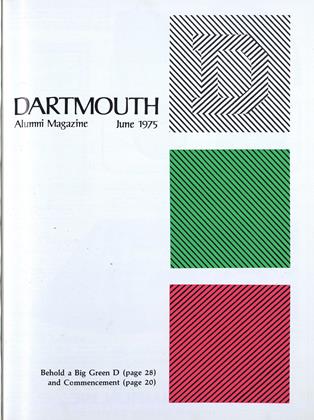After his defeat in the 1952 presidential election, Adlai Stevenson, both titular and actual head of the Democratic Party, spent five months traveling in Asia, the Middle East, and Europe. He visited 30 countries, not in any official capacity but to learn - and learn he did. His observations: in letters, informal talks and press conferences, and in a series in Look magazine are as fresh, as cogent, as penetrating when read today as they were more than 20 years ago. The essential difference is that we can now appreciate the profound statesmanship of a man who saw, and understood, the cross currents, the animosities, the national ambitions that have since erupted into bitter conflicts.
Of particular significance are his visits to Vietnam and Cambodia, India and Pakistan, Israel ana the Arab States. There is surely nothing factual here that was not known to John Foster Dulles. Indeed many of the most penetrating analyses came through embassy officials. The difference was the quality of Stevenson's mind and his compassionate understanding of the people he talked with and saw at their daily tasks. There are insights and evaluations here that, taken seriously by those in power might have . . . ! But of this the reader must judge for himself. Here was a man who always sought out all sides, who visited mortal enemies almost on successive days, who saw and suggested avenues toward peaceful settlements. The pieces on Vietnam and India explain much that has happened since they were written. The pieces on Israel and Cyprus might have been written yesterday.
This volume reflects especially Stevenson's tact and his diplomatic skill in press conferences and in individual and group discussions with national leaders. He skillfully avoids siding with any group or faction, he makes no predictions, he does not allow himself to become parochially involved, yet always he shows breadth of understanding and an ability to identify with local difficulties and aspirations even as he deftly fits them into a world-wide picture. He was, of course, accompanied by aides and assistants - the editor of these volumes was among them - but no man worked harder than Stevenson himself; no world traveler ever did his homework better or more thoroughly. Writing, remember, in 1953, he distilled his findings into one of those ever memorable Stevenson sentences: "The crisis of our times is moral as well as material, and the spirit of man is stronger and hungrier than the body." The volume ends with a reprinting of Stevenson's Godkin Lectures, delivered at Harvard early in 1954 and published under the title Call toGreatness. It was a call that a majority of the American electorate chose to ignore.
More than any of its predecessors, this fifth volume of Stevenson papers reveals the workmanlike skill of its editors. Running head-notes, sometimes quite extensive but never obtrusive, are used to carry the continuity of the pilgrimage, to explain the setting out of which Stevenson's own comments came, to identify people, places, and events - even on occasion to capsule national histories - but they are always used to set the scene and to introduce the characters, never to usurp the role of commentator. It is a timely, insightful, superbly edited book to which no review could do justice. The reader will find himself enthralled and instructed on every page, and deeply saddened that so much of wisdom was brushed aside in violence.
THE PAPERS OF ADLAI E.STEVENSON. Volume 5. WalterJohnson '37, editor. Little, Brown,1974. Illustrated. 512 pp. $17.50.
Mr. Wiltse, Dartmouth Professor of History Emeritus, is editor of the Papers of Daniel Webster, now being published after years ofresearch and preparation.
 View Full Issue
View Full Issue
More From This Issue
-
 Feature
FeatureThe Battle of Bunker Hill
June 1975 By LEWIS STILWELL -
 Feature
FeatureA Big Green D in Your Mind's Eye
June 1975 By LORRIN A. RIGGS -
 Feature
FeatureCommencement
June 1975 By JAMES L. FARLEY '42 -
 Feature
FeatureThe Orioles Are Back
June 1975 By DANA S. LAMB -
 Article
ArticleBig Green Teams
June 1975 By JACK DEGANGE -
 Article
ArticleHonorary Degrees
June 1975
CHARLES M. WILTSE
-
 Books
BooksJOSHUA R. GIDDINGS AND THE TACTICS OF RADICAL POLITICS.
OCTOBER 1970 By Charles M. Wiltse -
 Books
BooksTHE HEALING OF A NATION.
OCTOBER 1971 By CHARLES M. WILTSE -
 Books
BooksTHE PAPERS OF ADLAI STEVENSON.
January 1974 By CHARLES M. WILTSE -
 Article
ArticleWebster and a Small College
April 1974 By CHARLES M. WILTSE -
 Books
BooksTHE PAPERS OF ADLAI E. STEVENSON. VOL. 4. LETS TALK SENSE TO THE AMERICAN PEOPLE." 1952-1955
July 1974 By CHARLES M. WILTSE -
 Books
BooksRecord Completed
March 1980 By Charles M. Wiltse
Books
-
 Books
Books"The Pardoning of Prisoners by Pilate"
March 1917 -
 Books
BooksWINERS GOT SCARS TOO: THE LIFE AND LENGENNDS OF JOHNNY CASH.
JANUARY 1972 By CHARLES E. BREED '51 -
 Books
BooksTHE ZONING GAME: MUNICIPAL PRACTICES AND POLICIES.
FEBRUARY 1967 By FRANK SMALLWOOD '51 -
 Books
BooksFAREWELL TO FOGGY BOTTOM.
DECEMBER 1964 By HON. ROBERT CHARLES HILL '42 -
 Books
BooksCONTRACEPTION AND FERTILITY IN THE SOUTHERN APPALACHIANS.
November 1942 By James F. Crow -
 Books
BooksTHE HARDER THEY FALL,
October 1947 By Joel W. Egerer


